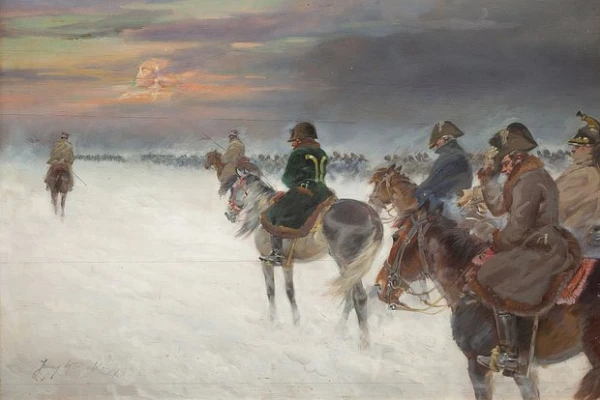
ABC: scientists have found new species of bacteria that killed Napoleon's army in Russia.
Scientists have discovered two new species of bacteria that contributed to the destruction of Napoleon Bonaparte's army in 1812. This was reported by the Spanish newspaper ABC.
The samples for study were the remains of soldiers found in a mass grave in Vilnius back in 2001. According to the researchers, each of the 13 examined bodies was infected with Borrelia recurrentis and Salmonella enterica paratyphi C. These bacteria are transmitted by blood-sucking parasites, particularly lice.
Until recently, historians believed that most of Napoleon's army retreating from Russia perished due to typhus and trench fever. However, there was no evidence for this. None was found in the recent studies either.
It turned out that by 1812, paratyphoid had long been documented as a disease. Its symptoms include headache, rash, weakness, loss of appetite, diarrhea, constipation, colic, and vomiting. It is suggested that paratyphoid was not mentioned in any of the official documents describing the 1812 military campaign due to its specific manifestation. The infection may have simply gone unnoticed against the backdrop of others.













